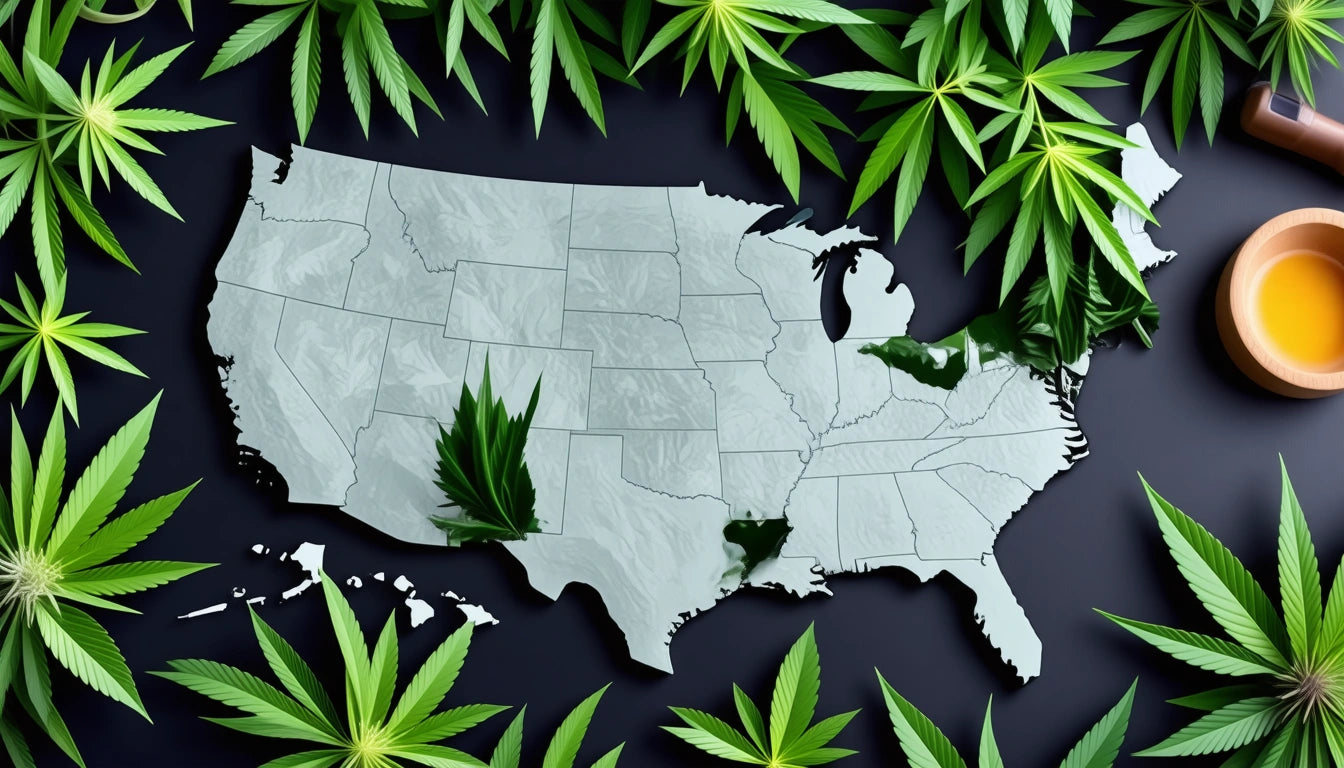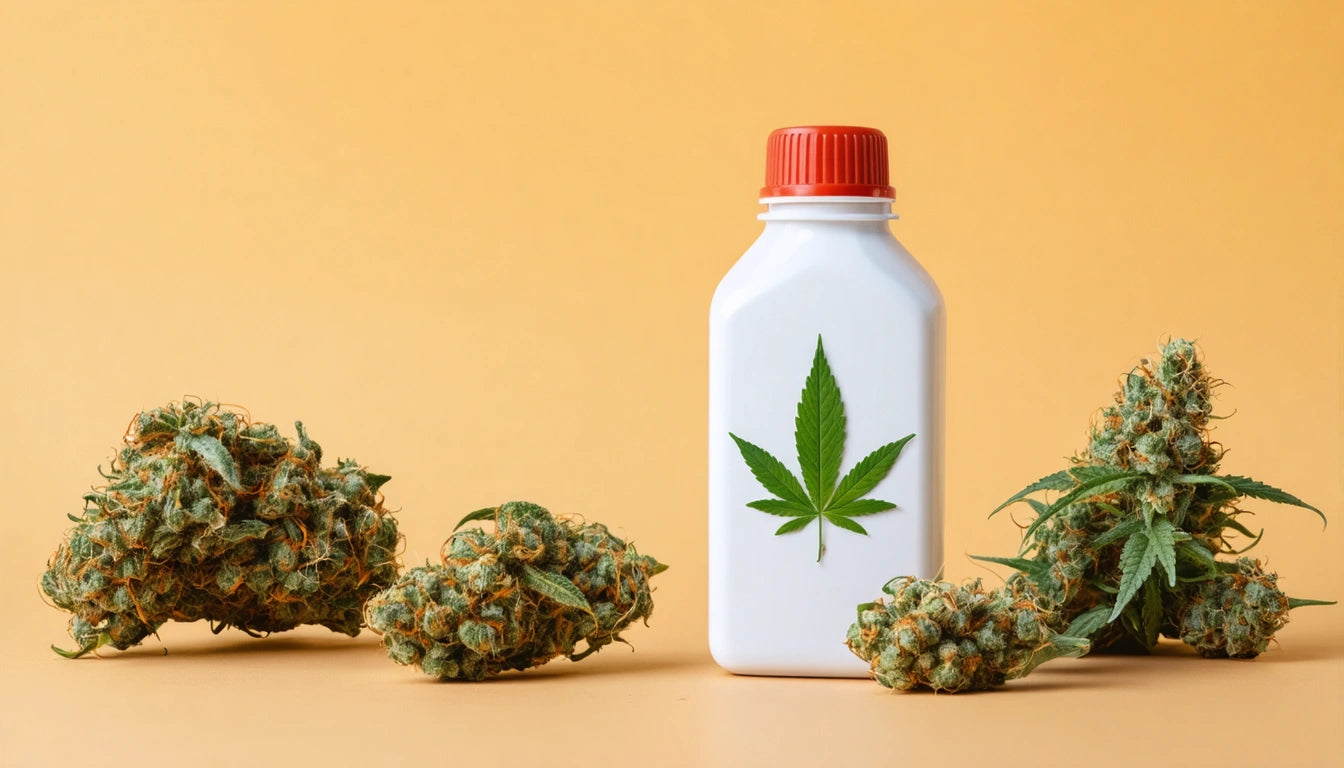Table of Contents
Where Can You Legally Grow Marijuana in the United States?
As cannabis legalization continues to evolve across the United States, many enthusiasts wonder about the legality of growing marijuana at home. The laws vary significantly from state to state, with some allowing generous plant counts while others prohibit home cultivation entirely, even where recreational use is legal. Understanding these regulations is essential for anyone interested in growing cannabis without legal repercussions.
States Allowing Home Marijuana Cultivation
Currently, 23 states and Washington D.C. have legalized recreational marijuana for adults. However, not all of these states permit home cultivation. According to legal guidelines, the following states allow adults to grow cannabis at home for personal use:
- Alaska (6 plants, no more than 3 mature)
- Arizona (6 plants per individual, 12 per household)
- California (6 plants per residence)
- Colorado (6 plants, no more than 3 mature, 12 max per household)
- Connecticut (6 plants per adult, 12 max per household)
- District of Columbia (6 plants, no more than 3 mature)
- Hawaii (medical only, 10 plants)
- Illinois (medical only, 5 plants)
- Maine (3 mature plants, 12 immature, unlimited seedlings)
- Massachusetts (6 plants per adult, 12 max per household)
- Michigan (12 plants per household)
- Missouri (6 flowering plants, 6 non-flowering, 6 clones)
- Montana (2 mature plants, 2 seedlings)
- Nevada (6 plants per person, 12 max per household if 25+ miles from dispensary)
- New Mexico (6 mature, 12 total per household)
- New York (6 plants per adult, 12 max per household)
- Oklahoma (medical only, 12 plants)
- Oregon (4 plants per residence)
- Rhode Island (6 plants, no more than 3 mature)
- Vermont (6 plants, no more than 2 mature)
- Virginia (4 plants per household)
Some states with recreational legalization, such as New Jersey and Washington, notably do not permit home growing for recreational users.
Washington State: Home Growing Regulations
If you're wondering, "Can I grow pot in Washington state?" the answer depends on your status. Washington has unique restrictions compared to other recreational states:
- Recreational users cannot legally grow cannabis at home
- Medical marijuana patients with proper authorization can grow:
- Up to 6 plants for standard patients
- Up to 15 plants with special healthcare provider authorization
This makes Washington one of the few states where recreational marijuana is legal but home cultivation is not permitted for adult-use consumers. For more specific information on Washington's laws, you can refer to this detailed guide on Washington cannabis laws.
Massachusetts: Home Growing Guidelines
For those asking "Can you grow pot in Massachusetts?" the answer is yes, with specific limitations:
- Adults 21+ can grow up to 6 plants individually
- Maximum of 12 plants per household regardless of the number of adults
- Plants must be kept in an area with a lock or security device
- Plants cannot be visible from a public place without the use of binoculars, aircraft, or other optical aids
Massachusetts has relatively generous home cultivation laws compared to many other states, making it popular for home growers. The state allows both indoor and outdoor growing, provided security and visibility requirements are met.
Comparing State Regulations for Home Cultivation
When comparing what states allow pot growing, several factors come into play:
Plant Count Limits
The number of allowed plants varies significantly:
- Most restrictive: Montana (2 mature plants)
- Most permissive: Michigan (12 plants per household)
- Medical programs often allow higher counts than recreational
Location Restrictions
States impose various requirements on where plants can be grown:
- Some states require indoor growing only
- Others permit outdoor cultivation with security measures
- Many require plants to be in locked, enclosed spaces
- Most prohibit visible plants from public spaces
Registration Requirements
Some states require growers to register or obtain permits:
- Medical programs typically require patient registration
- Some recreational states require no registration for personal grows
- Others may require notification to state agencies
For comprehensive information on specific state regulations, this resource on home growing guidelines provides detailed state-by-state breakdowns.
Equipment Considerations for Legal Home Growing
Regardless of which state you're in, proper equipment is essential for successful and compliant home cultivation. Setting up an effective grow space requires consideration of:
- Lighting systems (LED, HPS, or natural sunlight)
- Growing medium (soil, hydroponic, or aeroponic)
- Ventilation and odor control
- Security measures to meet state requirements
- Proper filling and processing equipment for harvest
When harvesting and processing your plants, having the right tools makes a significant difference in quality and efficiency. We offer specialized equipment for processing your harvested cannabis that can help home growers achieve professional-quality results while maintaining compliance with state regulations.
Best States for Home Marijuana Cultivation
When considering the best state to grow pot legally, several factors should be evaluated:
Climate Considerations
For outdoor growing, states with favorable climates include:
- California: Long growing season and optimal conditions
- Oregon: Despite rain, has good growing regions
- Colorado: High altitude provides intense sunlight
Regulatory Environment
States with the most favorable regulatory environments include:
- Michigan: Generous 12-plant allowance
- Colorado: Established regulations and growing culture
- Maine: Allows substantial plant counts and has reasonable restrictions
Access to Resources
Consider states with:
- Well-established growing communities for knowledge sharing
- Access to quality seeds and clones
- Availability of growing supplies and equipment
For those looking to start growing at home legally, this comprehensive guide on indoor and outdoor growing techniques provides valuable information to get started regardless of your location.
Remember that even in states where home cultivation is legal, local municipalities may have additional restrictions or requirements. Always check both state and local regulations before beginning a home grow operation to ensure full compliance with all applicable laws.











Leave a comment
All comments are moderated before being published.
This site is protected by hCaptcha and the hCaptcha Privacy Policy and Terms of Service apply.